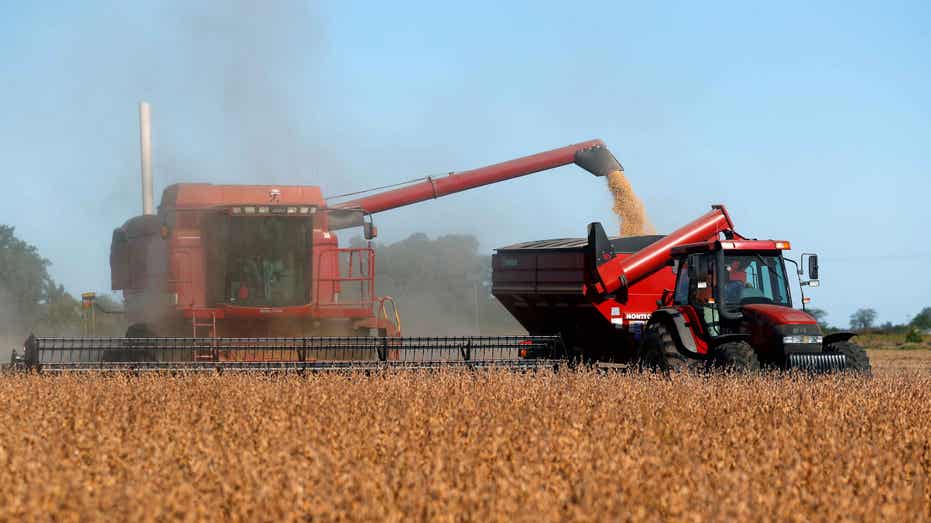Argentina raises financing rates for soybean farmers who hoard stock
Argentina tries increasing its foreign currency reserves by incentivizing soybean farmers to sell stock
Argentine soy farmers who hold onto stock of more than 5% of their production will face an elevated financing cost above the normal benchmark rate, the South American country's central bank said on Thursday, part of a wider push to encourage sales.
The central bank said soy farmers over a certain size who hoarded their stock would face a minimum financing rate "equivalent to 120% of the latest Monetary Policy rate."
Argentina's benchmark interest rate stands at 69.5%.
US FARMERS CAN SUPPLY LONG-TERM ENERGY AND CLIMATE SOLUTIONS
Thursday's announcement aims "to make credit more expensive so that it is more convenient to sell (soybeans) than to take credit," a source familiar with the matter explained.

Argentine soybean farmers will start to be penalized for hoarding stock in an effort to incentivize selling the produce as farmers hoard stock to hedge against inflation. Pictured: A combine harvester is used to collect soybeans on a farm in Chivilco (REUTERS/Agustin Marcarian / Reuters Photos)
The source added that now "the rate of any line of credit is going to be more expensive" for soybean producers, whose minimum rate would start at 83.4% under the new policy, the source said.
The move comes as part of an effort by authorities to replenish dwindling foreign currency reserves by pressuring soybean farmers to export more.
FARMERS WARN KETCHUP, SALSA, PASTA SAUCE AND OTHER TOMATO PRODUCTS COULD SOON BE IN SHORT SUPPLY
On Sunday, Economy Minister Sergio Massa set a preferential exchange rate for soybean producers, sending soybean exports surging earlier this week.
Argentina is the world's top exporter of processed soy oil and soymeal and the No. 3 for raw soybeans, but farmers have been holding onto stock as a hedge against inflation and potential devaluation of the local peso currency.




















